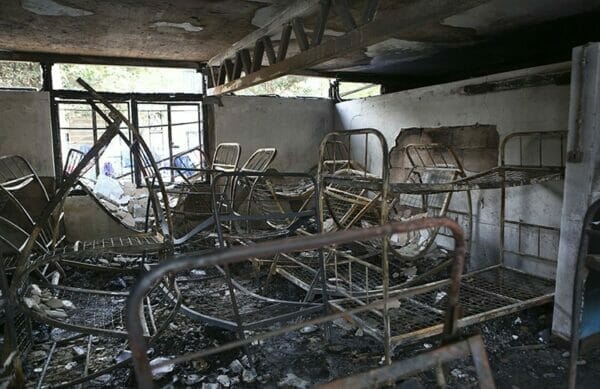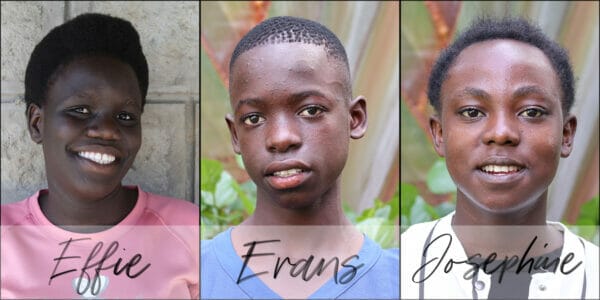Effects of a Spate of Arson Attacks on Kenyan Secondary Schools:
A Case Study of Effie, Evans, and Josephine
by Mercy Gemini
In recent years the education sector in Kenya has witnessed an unusual amount of student unrest and violence at the secondary school level. These actions result in the interruption of learning, mass destruction of student belongings and school property, and even loss of human life.
 |
At Ndoto, one of the goals of the education program is to see all students stay in school. This is foundational for their academic performance. However, 3 students in the sponsorship program missed school due to arson cases recently. They had to be out of school for some time while the school administrators investigated the fires. Ndoto helped replace the students’ items that were lost in the fire. Unfortunately, fees to rebuild were assessed on all students, regardless of their involvement, and parents had to pay them before their students could report back to school.
Effie is in 12th grade at Nyakach Girls’ High School in Kisumu County. The 18 year old was a victim of an arson attack in her school. Effie lost a set of school uniforms to the fire. The same was true for Evans, a 9th grade student at Maranda Boys’ High School. Josephine, in 11th grade at Keveye Girls Secondary School in Vihiga County, was also set back by arson. From the attempted arson in her school, the students were fined severely – a total of Ksh. 7,000 (about $61, or about half an average monthly income). This cost her mother greatly, given the tough economic times in the country.
 |
What is causing these flames of destruction in the secondary schools? What will it take to extinguish the unrest in the schools while igniting a lasting desire to restore order to the learning institutions? Education stakeholders cannot afford to bury their heads in the sand regarding this issue because of the costs that come with it. Different agencies have found through research that some of the causes of Kenyan student unrest include a lack of role models, communication breakdown between students and administration, inadequate guidance and counseling services, and a lack of adequate welfare services.
From these findings, it is evident that there’s great need for intentional mentorship for teenagers in secondary schools, and this is a burden on the shoulders of Ndoto. The words of the psalmist in Psalms 119:9 say, “How can a young man keep his way pure? By guarding it according to your word.” Ndoto seeks to help its beneficiaries become more aware of themselves and learn to take responsibility for their actions at school and in their community. In the long run, Ndoto helps to shape and develop their character and personality. This is done through the mentorship sessions offered through the discipleship program.
When it comes to role models, communication, guidance, counseling, and welfare, Ndoto is well-positioned to address many of the root causes of unrest in Kenyan education.

